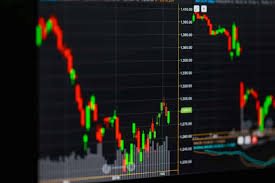
The Ultimate Guide to Forex Trading Systems
In the world of finance, forex trading system Trading Broker Global plays a vital role, providing a platform for traders to engage in the currency markets. Forex trading systems have become essential tools for both novice and experienced traders who seek to navigate the complexities of the foreign exchange markets. In this article, we will explore the fundamental aspects of forex trading systems, their various types, and how they can be effectively used to maximize trading success.
Understanding Forex Trading Systems
Forex trading systems are sets of rules and strategies that traders use to make decisions about entering and exiting trades in the foreign exchange market. These systems can be manual or automated, leveraging technical analysis, fundamental analysis, or a combination of both. The purpose of a forex trading system is to provide a structured approach to trading, minimizing emotional decision-making and maximizing profitability.
Types of Forex Trading Systems
1. Manual Trading Systems
Manual trading systems rely on the trader’s judgment and analysis. Traders use charts, indicators, and their understanding of the market to make trading decisions. This type of system offers flexibility, allowing traders to adapt to changing market conditions. However, it also requires significant time investment and emotional discipline.
2. Automated Trading Systems

Automated trading systems are computer-based algorithms that execute trades on behalf of the trader based on predefined criteria. These systems can process vast amounts of data quickly, making them suitable for high-frequency trading strategies. While automated systems can reduce emotional trading and eliminate human error, they require ongoing monitoring and adjustment to remain effective in changing market conditions.
Key Components of a Successful Forex Trading System
1. Strategy Development
The foundation of any trading system is its strategy. A good forex trading strategy should outline specific criteria for entering and exiting trades, including risk management rules. Traders often test their strategies using historical data through a process called backtesting to assess their effectiveness.
2. Risk Management
Risk management is crucial in forex trading. A successful trading system should include guidelines for determining position sizes, setting stop-loss orders, and managing overall portfolio risk. This reduces the impact of losses on the trader’s capital and ensures long-term sustainability in the market.
3. Technical Analysis
Most forex trading systems incorporate technical analysis using indicators such as moving averages, Relative Strength Index (RSI), and Fibonacci retracement levels. These tools help traders identify trends, reversal points, and potential entry or exit signals.

4. Fundamental Analysis
Fundamental analysis focuses on economic indicators and news events that can impact currency values. News such as interest rate changes, employment reports, and geopolitical developments can significantly influence market movements. Incorporating fundamental analysis into a trading system allows traders to anticipate and react to such events.
Choosing the Right Forex Trading System
With so many trading systems available, choosing the right one can be overwhelming. Here are some factors to consider when selecting a forex trading system:
- Trading Style: Identify whether you prefer day trading, swing trading, or long-term investing, and choose a system that aligns with your style.
- Time Commitment: Assess how much time you can dedicate to trading. Some systems require constant monitoring, while others may allow for less frequent checks.
- Level of Experience: Beginners might benefit more from simpler systems, while advanced traders may prefer more complex strategies.
- Performance History: Look for systems with a proven track record, verified through backtesting and live trading results.
The Importance of Continuous Learning and Adaptation
The forex market is dynamic, with conditions that can change rapidly. Therefore, continuous learning and adaptation are essential for traders using any trading system. Regularly evaluate the performance of your trading system and be open to making adjustments based on market changes and new insights.
Additionally, staying informed about global economic trends, political events, and market sentiment can provide valuable context that enhances your trading decisions. Online resources, trading forums, and educational courses are great ways to continue your forex education.
Final Thoughts
In conclusion, a forex trading system can significantly enhance your trading efficiency and profitability. Whether you choose a manual or automated approach, the key to success lies in developing a robust strategy, effective risk management, and a willingness to adapt to changing market conditions. As you embark on your forex trading journey, remember that discipline, patience, and continuous improvement are your best allies.

